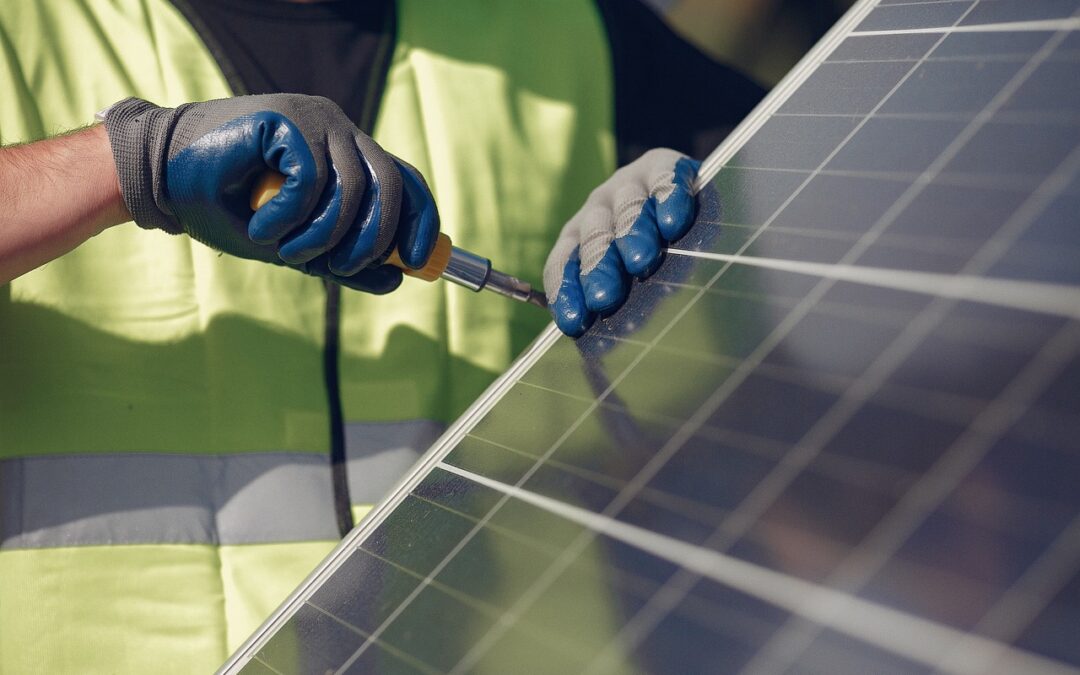Considering buying solar panels?
If you are thinking of installing a solar PV system on your roof, you might be wondering what steps you need to take to ensure a successful and safe solar PV system installation.
A solar PV system can provide you with clean and renewable energy, reduce your electricity bills, and earn you some income from government incentives. However, it also requires careful planning, preparation, and execution. To help you with this process, we have prepared a solar PV system installation checklist that covers everything from before, during, and after the installation. By following this checklist, you can make sure that your solar PV system is installed correctly and efficiently, and that you get the most out of your investment.
Before the installation:
☐ Check local planning regulations to make sure you are allowed to install a Solar PV System on your roof.
☐ Check that the solar PV installer is MCS certified (NXTGEN Energy are MCS Certified Solar PV Installers and MCS Certified Battery Storage Installers) and familiarise yourself with the Renewable Energy Consumer Code.
☐ Get an Energy Performance Certificate (EPC) for your property, check if you already have an EPC here: Find an energy certificate – GOV.UK (www.gov.uk).
☐ Find your energy bills from the last year, or at the very least your last electricity bill, so you can compare your electricity use before and after the installation of your Solar PV System.
☐ Check with your home insurer that they will still insure you if you have a solar PV system installed.
☐ Ask the solar PV installer to provide you with an online quote based on satellite images of your roof and your electricity consumption data from your latest energy bill. The quote should include solar panel/module information, details of warranties, details of the solar inverter, the company’s terms and conditions, and information on how they have calculated the payback, rate of return and savings.
☐ Ask who will be doing the Solar PV System installation. Is it the same company or a sub-contractor?
During the installation:
Make sure the solar PV installer follows the best practices for solar panel installation, such as:
☐ Choosing a well-built solar panel mounting structure that can withstand the wind and weather conditions in the local area of your property.
☐ Installing the solar panels facing south or as close to south facing as possible for optimal energy production.
☐ Avoiding any shadows on the solar panels from trees, neighbouring properties and chimneys, and also taking into account how these shadows will move throughout the day and as seasons change.
☐ Adjusting the tilt angle of the solar panels according to your latitude for optimal energy production
☐ Using high-quality solar connectors and cables that are compatible with the solar panels and the inverter.
☐ Connecting the solar PV system with the inverter that matches the voltage and power output of the panels.
☐ Connecting the inverter with battery storage if you have one, or directly to the National Grid if you don’t.
☐ Following all health and safety precautions and regulations during the solar PV system installation process.
After the installation:
☐ Check that the Solar PV System is working properly and that you have all the necessary documentation, such as:
☐ A commissioning certificate that confirms that the Solar PV System meets MCS standards.
☐ A handover pack that contains user manuals for the panels, inverter and battery storage, warranty information, maintenance instructions, contact details of the MCS Installer and emergency procedures.
☐ An MCS certificate that proves that your Solar PV System is eligible for government incentives, such as the Smart Export Guarantee (SEG) Scheme.
☐ A Solar PV System generation meter reading that shows how much electricity your Solar PV System has produced since it was installed.
Get three quotes
To ensure you’re getting value for money, we also recommend getting quotes from three different companies before making your final decision and why not ask for feedback from previous customers. Remember NXTGEN Energy are MCS Certified Solar PV (Panel) Installers and MCS Certified Battery Storage Installers, a HIES Accredited Member, NAPIT Accredited, Government TrustMark Accredited and have 5-Star Reviews on Google and an ‘Excellent’ rating on Trustpilot.
Are you ready to invest in Solar Panels and convert to clean, renewable energy?
If you are a UK homeowner and interested in learning more about the different types of Solar PV systems, contact our expert team today. By filling out our contact form, our team will provide you with a free no-obligation quote to install a bespoke solar PV system, catered to your personal energy needs. Call us on 01268 928 690 or click the ‘Enquire Now’ button below to claim your free no-obligation quote and solar PV system design.
Frequently Asked Questions about Solar Panels
The short answer is yes. Solar panels can cut 70% off your energy bills, and that proportion is growing as gas bills rise. No wonder installations have risen by 45% in the last three years, and shot up by 80% in the last year alone. But solar panels are an investment.
1-2 bedroom property, 6 solar panels generating about 1,600 kWh a year.
3 bedroom property, 10 solar panels generating about 2,650 kWh a year.
4-5 bedroom property, 14 solar panels generating about 3,700 kWh a year.
The answer depends on how much you pay for the solar panels, how much your electricity would otherwise cost, how much green energy the panels make from the sunshine you get, and whether you have a battery installed or not. The average payback period for solar PV is coming down and can be about 10 to 20 years depending on your system.
The industry standard for most solar panels’ lifespans is 25 to 30 years. Most reputable manufacturers offer production warranties for 25 years or more. The average break even point for solar panel energy savings occurs six to 10 years after installation.
Whilst there is no hard and fast rule as to how much value solar panels can add to the overall value of your property, suggestions range from 4% to 14% on average and they are certainly unlikely to detract from the value of your home, even if they aren’t the most attractive feature visually.
Latest Solar Panel Posts
- Why Leisure Centres Should Invest in Solar Panels
 In recent years, the concept of sustainability has become increasingly vital in various industries, including leisure centres. As the global focus shifts towards environmental conservation and renewable energy sources, leisure centres are recognizing the importance of investing in sustainable practices to reduce their operating costs and their carbon footprint. One such sustainable solution gaining traction… Read more: Why Leisure Centres Should Invest in Solar Panels
In recent years, the concept of sustainability has become increasingly vital in various industries, including leisure centres. As the global focus shifts towards environmental conservation and renewable energy sources, leisure centres are recognizing the importance of investing in sustainable practices to reduce their operating costs and their carbon footprint. One such sustainable solution gaining traction… Read more: Why Leisure Centres Should Invest in Solar Panels - Solar Panels and EPC Ratings
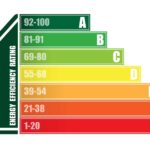 Solar panels have become increasingly popular as a sustainable energy solution, offering numerous benefits for both residential and commercial properties. In parallel, Energy Performance Certificate (EPC) ratings serve as indicators of a building’s energy efficiency. Understanding how solar panels can impact EPC ratings is crucial for maximizing energy savings and environmental benefits. This blog post… Read more: Solar Panels and EPC Ratings
Solar panels have become increasingly popular as a sustainable energy solution, offering numerous benefits for both residential and commercial properties. In parallel, Energy Performance Certificate (EPC) ratings serve as indicators of a building’s energy efficiency. Understanding how solar panels can impact EPC ratings is crucial for maximizing energy savings and environmental benefits. This blog post… Read more: Solar Panels and EPC Ratings - SunSynk Batteries: Innovative Energy Storage
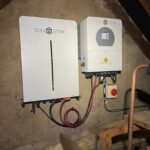 SunSynk Batteries have emerged as a leading solution in the realm of energy storage, offering a range of innovative features and benefits that cater to various applications. With a focus on sustainability and cutting-edge technology, SunSynk Batteries have captured the attention of residential, commercial, and industrial consumers alike. This blog post delves into the intricate… Read more: SunSynk Batteries: Innovative Energy Storage
SunSynk Batteries have emerged as a leading solution in the realm of energy storage, offering a range of innovative features and benefits that cater to various applications. With a focus on sustainability and cutting-edge technology, SunSynk Batteries have captured the attention of residential, commercial, and industrial consumers alike. This blog post delves into the intricate… Read more: SunSynk Batteries: Innovative Energy Storage - Solar Industry Update: Battery Installations in Lofts
 The British Standards Institute (BSI) has recently released new recommendations regarding home battery installations, including those in loft spaces. One common inquiry we receive from our customers following the publication of the Publicly Available Specification (PAS) is whether a solar battery can be installed in a loft. The answer is a resounding yes, with some… Read more: Solar Industry Update: Battery Installations in Lofts
The British Standards Institute (BSI) has recently released new recommendations regarding home battery installations, including those in loft spaces. One common inquiry we receive from our customers following the publication of the Publicly Available Specification (PAS) is whether a solar battery can be installed in a loft. The answer is a resounding yes, with some… Read more: Solar Industry Update: Battery Installations in Lofts - Voltage Optimisers, What Are They and How Do They Work?
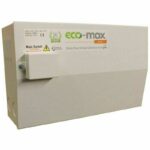 What is voltage optimisation? A voltage optimiser is a smart device that can help you save energy and reduce your carbon footprint. It works by adjusting the power supply from the National Grid to the ideal level for your electrical devices and appliances at home or work. This way, you can use less electricity and… Read more: Voltage Optimisers, What Are They and How Do They Work?
What is voltage optimisation? A voltage optimiser is a smart device that can help you save energy and reduce your carbon footprint. It works by adjusting the power supply from the National Grid to the ideal level for your electrical devices and appliances at home or work. This way, you can use less electricity and… Read more: Voltage Optimisers, What Are They and How Do They Work? - String Inverter vs Microinverter: Centralized vs Modular
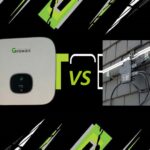 Imagine waking up to a sunny morning, not just because the birds are chirping, but because your roof is silently turning sunlight into clean energy for your entire home. That’s the beauty of solar power, but with all the different equipment options, it can feel overwhelming. One crucial decision you’ll face is choosing between string… Read more: String Inverter vs Microinverter: Centralized vs Modular
Imagine waking up to a sunny morning, not just because the birds are chirping, but because your roof is silently turning sunlight into clean energy for your entire home. That’s the beauty of solar power, but with all the different equipment options, it can feel overwhelming. One crucial decision you’ll face is choosing between string… Read more: String Inverter vs Microinverter: Centralized vs Modular - Why UK Homeowners with Solar Panels Need Bird Proofing (Beyond the Basics)
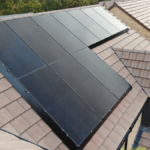 Imagine waking up to the quiet hum of your solar panels, generating clean energy to power your home. It’s a beautiful image, symbolizing lower electricity bills and sustainability. But what if a gang of birds decided the solar panels on your roof were the perfect spot for their new condo complex? Unfortunately, this idyllic scene… Read more: Why UK Homeowners with Solar Panels Need Bird Proofing (Beyond the Basics)
Imagine waking up to the quiet hum of your solar panels, generating clean energy to power your home. It’s a beautiful image, symbolizing lower electricity bills and sustainability. But what if a gang of birds decided the solar panels on your roof were the perfect spot for their new condo complex? Unfortunately, this idyllic scene… Read more: Why UK Homeowners with Solar Panels Need Bird Proofing (Beyond the Basics) - How AI could supercharge your solar panels
 Imagine stepping outside on a crisp January morning, a mug of steaming tea warming your hands. You glance at your rooftop, not with dread at energy bills, but with a mischievous grin. Why? Because the sun, that cheeky orb in the sky, is being squeezed for every juicy watt it holds thanks to your AI-powered… Read more: How AI could supercharge your solar panels
Imagine stepping outside on a crisp January morning, a mug of steaming tea warming your hands. You glance at your rooftop, not with dread at energy bills, but with a mischievous grin. Why? Because the sun, that cheeky orb in the sky, is being squeezed for every juicy watt it holds thanks to your AI-powered… Read more: How AI could supercharge your solar panels - New solar panel concept could reduce payback time to just five years
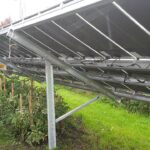 Researchers have conducted a comprehensive analysis and determined that a ground-breaking renewable energy concept has the potential to significantly reduce the payback period for solar panels to less than five years. This innovative approach, known as agrivoltaics or Agri-PV, involves the integration of solar farms with “shadow-friendly” crops. A team of experts from the esteemed… Read more: New solar panel concept could reduce payback time to just five years
Researchers have conducted a comprehensive analysis and determined that a ground-breaking renewable energy concept has the potential to significantly reduce the payback period for solar panels to less than five years. This innovative approach, known as agrivoltaics or Agri-PV, involves the integration of solar farms with “shadow-friendly” crops. A team of experts from the esteemed… Read more: New solar panel concept could reduce payback time to just five years - Soak up the sunshine, because solar power is on fire!
 2023 was a record year for renewable energy, thanks in no small part to our sun-loving friend, solar. The International Energy Agency (IEA) says solar power added enough juice to the grid to power up half of all new renewable energy in 2023 – that’s a 50% jump! And this isn’t just a one-year blip,… Read more: Soak up the sunshine, because solar power is on fire!
2023 was a record year for renewable energy, thanks in no small part to our sun-loving friend, solar. The International Energy Agency (IEA) says solar power added enough juice to the grid to power up half of all new renewable energy in 2023 – that’s a 50% jump! And this isn’t just a one-year blip,… Read more: Soak up the sunshine, because solar power is on fire! - Reasons Why Solar Energy is the Ultimate Homeowner’s Investment
 In recent years, solar energy has emerged as a game-changer in the world of residential power generation. As concerns about the environment and rising utility costs continue to grow, homeowners are increasingly turning to solar energy as a sustainable and financially savvy solution. This article aims to explore the reasons why solar energy is the… Read more: Reasons Why Solar Energy is the Ultimate Homeowner’s Investment
In recent years, solar energy has emerged as a game-changer in the world of residential power generation. As concerns about the environment and rising utility costs continue to grow, homeowners are increasingly turning to solar energy as a sustainable and financially savvy solution. This article aims to explore the reasons why solar energy is the… Read more: Reasons Why Solar Energy is the Ultimate Homeowner’s Investment - Why Your Business Should Invest in Commercial Solar Panels
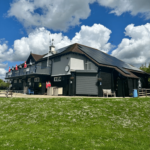 Solar panels on houses and residential properties have become increasingly common in the last year. The number of individuals seeking a more sustainable way of living continues to grow each year. However, the pursuit of a greener existence is not limited to domestic life. Investing in commercial solar panels is an excellent way to reduce… Read more: Why Your Business Should Invest in Commercial Solar Panels
Solar panels on houses and residential properties have become increasingly common in the last year. The number of individuals seeking a more sustainable way of living continues to grow each year. However, the pursuit of a greener existence is not limited to domestic life. Investing in commercial solar panels is an excellent way to reduce… Read more: Why Your Business Should Invest in Commercial Solar Panels

